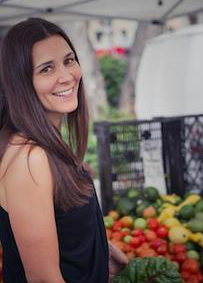
by PRIDE Reading Program Admin | Jan 24, 2016 | A PRIDE Post, Nutrition
By Jeanne Peters RD
Research has proven that for the most part, great brains are made, they are not born. From birth to age 5, up to 30 IQ points are up for grabs. Children may be born with the genetic potential to have a higher than average IQ, but if they are not properly nurtured and nourished during the first few years of life, they will not achieve their full potential. So here are a few proven points for nourishing a smart, calm child:
1. Feed your toddler to teen an optimal diet to enhance brain growth. Even a slight deficiency in a key vitamin, minerals like magnesium, or healthy omega fats during the time when the brain is going through its spectacular growth spurt can result in a lower IQ, poor test scores or depression. Any child with ADD or ADHD should be tested for iron/iodine and zinc deficiencies to rule out nutrition as part of the issue.
2. Add healthy fats into the diet, daily! The brain is 60% or more fat by weight. This indicates the great need the brain has to be fed healthy fats — not the kind of fats found in gold fish crackers or cream cheese on your child’s bagel, but fats found in fish or fish oils, whole eggs or flax seed meal that you can easily sneak into oatmeal or a smoothie as a part of your “stealth nutrition” plan.
3. Add in quality protein at every meal, especially breakfast: This is the nutrient that is critical for increasing the neurotransmitter norepinephrine, which allows the mind to focus. A child cannot learn on cheerios or a pop tart for breakfast. Instead, try a glass of kefir smoothie or egg on toast.
4. Add in one new vegetable and fruit serving per day: Research indicates that one third of children under two years of age eat no fruit or vegetables. More than 60 percent of 1-year-olds eat dessert or candy daily, and 30 to 40 percent of children aged 15 months or older have a sugary fruit drink daily. Empty calories are replacing the nutrient-dense foods children need to feed a healthy brain. Look at your own diet and determine if you are role modeling healthy eating for your children. If you or your children could use a tune-up, consider an appointment with a Registered Dietitian.
Learn more about the New PRIDE Reading Program
________________________________________________________________________________________________
Jeanne Peters RD is co-founder and Nutrition Director for the Nourishing Wellness Medical Center in Torrance, CA. She has over 25 years experience of promoting healthy, sustainable food and lifestyle choices as a Registered Dietitian, Certified Wellness Coach and, most importantly, as a mother of three boys & grandmother of three toddlers. Awarded the California Young Dietitian of the Year in 1995, her passion is sharing ways to nourish healthy families through real wholesome foods! Visit her website at www.nourishingwellness.com

by PRIDE Reading Program Admin | Mar 8, 2015 | A PRIDE Post, Nutrition, Pride Mission Viejo
“Breakfast is the most important meal of the day!” How many times did you hear that from your mom or grandma when you were growing up? Well, they were right! Breakfast really is the most important meal of the day.
Let’s break down the word into its parts – Break the fast. While you sleep, your body is fasting and when you wake up in the morning, chances are it’s been at least 8-10 hours since you’ve eaten anything. You’re hungry and need to fuel your body and brain for the coming day. The choices that you make at your first meal can set the stage for a day filled with energy or leave you dragging. And think about your kids in school. Research has shown that kids who eat breakfast perform better on cognitive tasks and have more focus and better behavior than kids who do not eat breakfast.
What you eat is just as important as the fact that you eat. A typical breakfast of cereal, bagel and cream cheese, or muffin is full of refined carbohydrates and low in protein. Such a meal will give you a temporary boost in energy but quickly exit your system, crashing your blood sugar level , energy, and ability to focus. The ideal breakfast has a balance of healthy carbohydrates, protein, and healthy fat. A meal like this keeps your blood sugar and energy level steady for three to four hours.
Breakfast ideas:
- breakfast burrito
- eggs (cooked in coconut oil), fruit, sweet potato hash
- oatmeal with nuts or seeds and fruit
- smoothie
- high-protein pancakes
That’s why I wrote the breakfast cookbook, “No Excuses! 50 Healthy Ways to ROCK Breakfast!” After 20 years in private practice, I have heard every excuse as to why my clients couldn’t or wouldn’t eat breakfast. “I don’t have the time.” “I don’t want to be a short-order cook!” Yet, they struggle with their energy, immunity, and weight. And kids will follow what their parents model. If you want your kids to eat a healthy breakfast, then parents have to set the example. Unfortunately, most kids tend towards foods that are low in nutritional value – high in refined carbs and low in protein, fiber, and healthy fat. Food like pancakes, waffles, bagels, and cereal.
In my desire to “healthify” favorite recipes, I’ve changed around the ingredient list to include more protein, change the type of grain (higher fiber), and add some healthy fat, all of which work together to keep you fuller for longer. Plus, all of my recipes are kid-approved. Even better – you and your children can continue to enjoy favorite breakfast foods. Have them for breakfast, lunch, or dinner. Just don’t tell them that they’re nutritious. All they will taste is that they’re delicious!
Erin Macdonald, RDN is a nutrition, fitness, and wellness coach in private practice in Mission Viejo. She is also the co-founder of U Rock Girl!, a website devoted to nourishing the mind, body, and spirit, and the co-author of the cookbook, “No Excuses! 50 Healthy Ways to ROCK Breakfast!” available on www.URockGirl.com as well as numerous other delicious recipes for every meal of the day.

by PRIDE Reading Program Admin | Sep 21, 2012 | A PRIDE Post, Nutrition
Here are some tips and strategies from Nutrition Guru Melanie Silverman, MS, RD, IBCLC
A few important things to remember when shopping for food for you child:
Fresh food is best.
1. Shop the perimeter of the store. The middle aisles carries mostly processed foods.
2. If you are buying any packaged foods, I strongly advise that you avoid foods that have:
– high fructose corn syrup
– food dyes (FD&C Blue 1, 2 or 3, Red No. 40, Yellow 5 or 6) or artificial colors and artificial flavors
– preservatives (calcium propionate, sodium nitrate, sodium nitrite, sulfites, disodium EDTA)
Tips:
- All lunches should have sources of carbohydrate, protein and fat; 3-4 food items are plenty
- Drinks should be water or milk
- Make sure your child can access the food (provide utensils as needed)
- Watch the SUGAR—read labels
Ideas:(LEFTOVERS)
- Pizzas with spinach and/or mushroom, sliced cucumbers and dip, apple
- Whole wheat or brown rice pasta and sauce, olives, strawberries
- Two hardboiled eggs with crackers, handful of nuts and dried fruit, cantaloupe slices
- Bean and cheese quesadillas, sliced avocado and carrots, apple
- Cold chicken strips and “sauce” for dipping, olive oil chips, watermelon
- Turkey sandwich on whole grain bread with lettuce and cucumber, edamame and pear
- Sliced marinated tofu strips, rice, fruit salad
- Lean roast beef sandwich, red pepper strips, yogurt
- Scoop of tuna, salmon or chicken salad, crackers or pita, carrot sticks, applesauce
- Bagel with butter and/or cheese, green beans, raspberries
- Whole grain cereal, handful of nuts, yogurt
- Roll-Ups (Whole wheat tortilla, turkey, mozzarella cheese, cucumber and avocado), wheat pretzels, banana
- Ham and cheese sandwich, popcorn, celery sticks and dip, oranges
Resources:
- Laptop Lunches: www.laptoplunches.com
- Chef Ann Cooper: www.chefann.com. “Changing the way we feed our children”
- Eating Well: www.eatingwell.com (search “healthy kids lunch recipes and tips)
___________________________________________________________________________________________
Melanie Silverman, MS, RD, IBCLC spent seven years as a clinical dietitian at the University of Chicago Medical Center in the neonatal intensive care unit, pediatric intensive care unit, adult and pediatric bum units, and high risk follow-up clinic. Melanie is a preceptor for various dietetic internship programs around the country and has lectured at state and national meetings for the American Society for Parenteral and Enteral Nutrition, March of Dimes and Prader-Willi California Foundation. Her consulting practice is based in Laguna Beach, California, but she provides nutrition services nationwide. Melanie can be reached at Melanie@feedingphilosophies.com or visit her website at: www.feedingphilosophies.com



